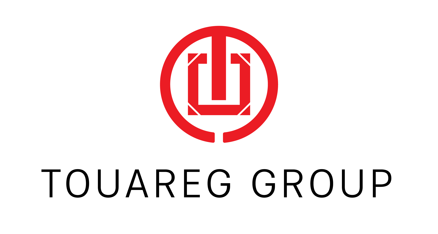



In July 2024, the U.S. Securities and Exchange Commission (SEC) granted approval for the first-ever spot Ethereum (ETH) exchange-traded funds (ETFs), a significant milestone for the cryptocurrency market. Despite this groundbreaking development, the anticipated bullish surge in Ethereum prices has yet to materialize. The introduction of nine spot Ethereum ETFs did not catalyze the bullish rally that Ethereum investors had hoped for. Instead, Ethereum experienced a pause in its 2024 rally, as evidenced by a drop of 3.4% in July, closing the month at $3,272. The Grayscale Ethereum Trust (ETH) experienced notable outflows in the initial days of trading, reflecting a possible profit-taking phase by investors.
In contrast, Bitcoin (BTC) demonstrated resilience and growth in July. Despite a brief dip to a four-month low below $54,000 at the beginning of the month, Bitcoin rebounded, climbing more than 11% overall and finishing July above $67,700. The boost in Bitcoin prices was partly fueled by headlines regarding the U.S. presidential election, which have potential implications for a more crypto-friendly administration in 2025.
In July, Bitcoin prices fluctuated but ultimately ended the month on a strong note with a gain of 11%, marking a significant rise to over $67,700. Ethereum prices, on the other hand, fell by 3.4% to $3,272. Among the top 10 cryptocurrencies by market capitalization, XRP (XRP) emerged as the best performer, with a notable gain of 26.9%, while Toncoin (TON) was the worst performer for the month, although it remains up 21.5% over the past three months.
Year-to-date figures show substantial gains, with Bitcoin up 61.1% and Ethereum up 41.8% in 2024. The global cryptocurrency market capitalization has rebounded to $2.4 trillion, recovering from the lows experienced during the 2022 crypto winter, but still below the peak of over $2.9 trillion in November 2021.
The SEC's approval of spot Ethereum ETFs in July marked a significant development, following the earlier approval of spot Bitcoin ETFs. These ETFs, which began trading on July 23, include:
- ARK 21Shares Bitcoin ETF (ARKB)
- iShares Ethereum Trust ETF (ETHA)
- Invesco Galaxy Ethereum ETF (QETH)
- 21Shares Core Ethereum ETF (CETH)
- Fidelity Ethereum Fund (FETH)
- Franklin Ethereum ETF (EZET)
- VanEck Ethereum ETF (EFUT)
- Bitwise Ethereum ETF (AETH)
- Grayscale Ethereum Trust (ETHE)
- Grayscale Ethereum Mini Trust (ETH)
By July 26, BlackRock’s ETHA ETF led the group with $354.8 million in net inflows, followed by Bitwise’s ETHW fund with $249.9 million, and Fidelity’s FETH fund with $180.1 million. Julio Bedolla, a wealth manager at LourdMurray, asserts that these ETFs pave the way for institutional investors to enter the crypto market, enhancing confidence and reducing the complexity of direct cryptocurrency ownership. This development is anticipated to drive substantial capital inflows into the cryptocurrency sector.
Kavita Gupta, founder and partner at Delta Blockchain Fund, suggests that the new spot Ethereum ETFs could also trigger a rally in altcoins, despite Bitcoin's dominance. The interest from traditional finance players in launching ETFs for other altcoins, such as Solana, reflects growing institutional recognition beyond Bitcoin and Ethereum.
Despite the advancements in spot Bitcoin and Ethereum ETFs, the SEC continues to advise caution. SEC Chair Gary Gensler has emphasized that while the SEC has approved certain cryptocurrency ETFs, it does not endorse Bitcoin or Ethereum. Investors are cautioned about the inherent risks associated with cryptocurrency investments.
The Grayscale Ethereum Trust experienced approximately $1.2 billion in net outflows shortly after its uplisting to the New York Stock Exchange from the OTC Market in July. This trend mirrors similar outflows from Grayscale’s Bitcoin Trust (GBTC) following the launch of spot Bitcoin ETFs in January. The substantial outflows from the Grayscale Ethereum Trust could continue to impact Ethereum prices negatively, reflecting investor shifts in preferences.
The upcoming U.S. presidential election represents a significant catalyst for the crypto market. In July, the political landscape shifted dramatically with President Joe Biden’s announcement not to seek reelection and an assassination attempt on Republican nominee Donald Trump. Trump has positioned himself as a pro-crypto advocate, pledging support for Bitcoin mining and promising to create a pro-crypto advisory council. In contrast, Vice President Kamala Harris, the presumptive Democratic nominee, has been less vocal on cryptocurrency, and her stance remains uncertain.
VanEck’s digital asset research team posits that Trump would likely be more supportive of Bitcoin, while Harris might favor Ethereum. Despite these differing perspectives, there is optimism that whichever candidate wins, the White House could adopt a more favorable approach toward cryptocurrencies.
Bitcoin prices have been under pressure from significant sources of selling. The German government’s sale of 50,000 seized Bitcoins, worth about $3 billion, and a $9 billion payout to creditors of the failed Mt. Gox exchange have added to market volatility. Mt. Gox creditors have begun receiving repayments, potentially flooding the market with Bitcoin and influencing prices.
Additionally, a report from TRM Labs revealed that crypto hackers stole $1.38 billion worth of cryptocurrencies in the first half of 2024, more than double the previous year's amount. The increase in thefts, including private key compromises and smart contract exploits, underscores the ongoing risks within the crypto space.
Touareg Group, a diversified fund management company, recognizes these dynamics and their potential impact on the crypto market. The firm continues to monitor these developments closely, assessing the implications for investment strategies and market opportunities in the evolving landscape of digital assets.

Other News

